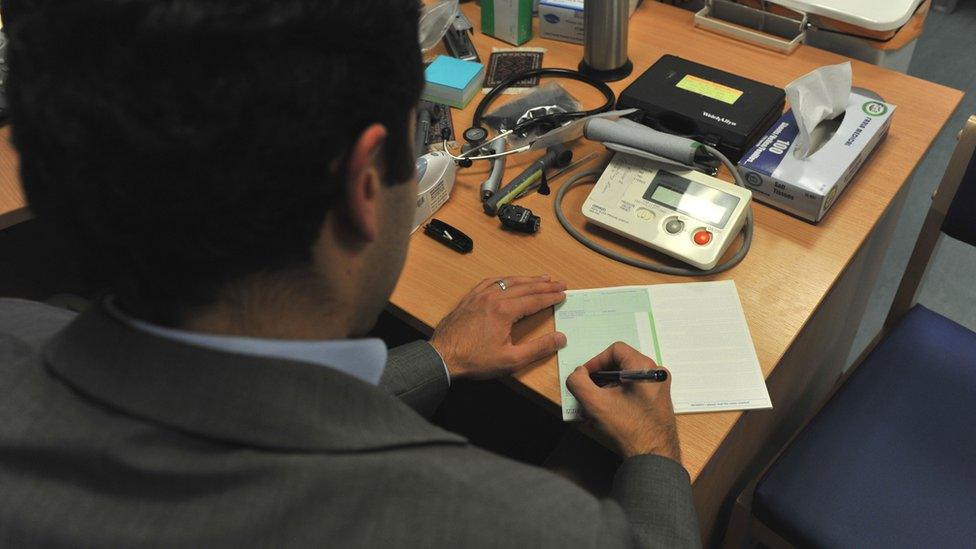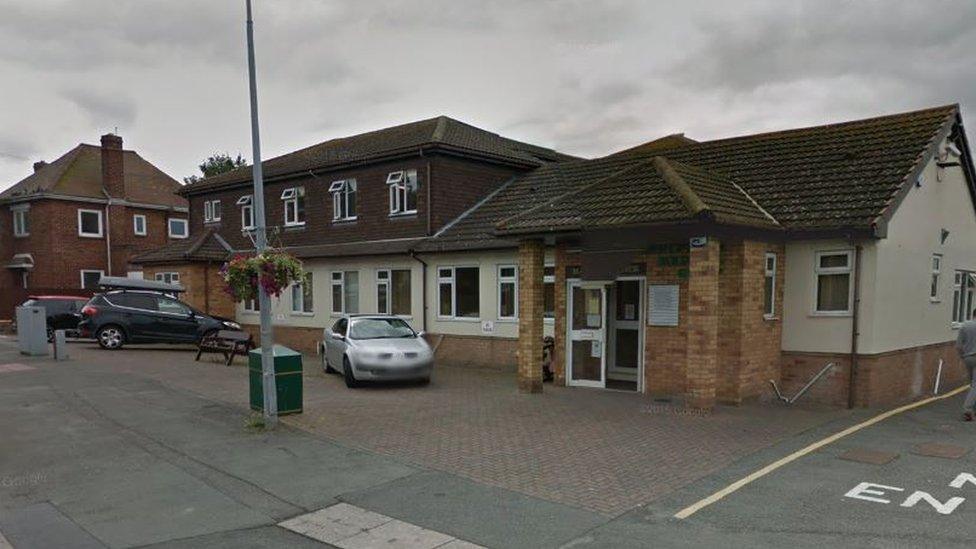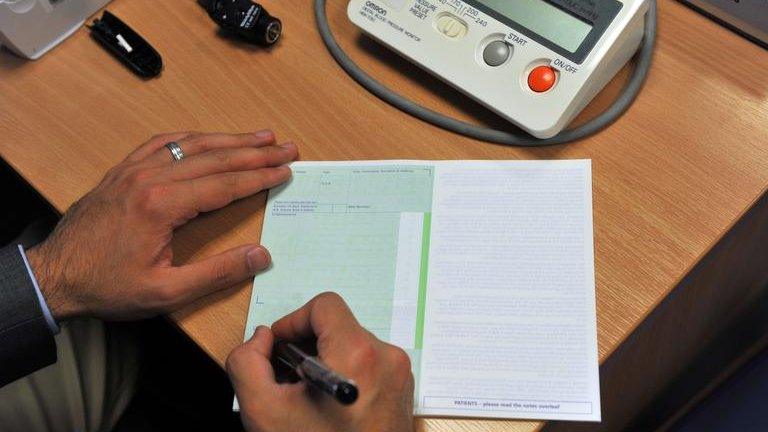GP care for 18,000 Prestatyn patients to 'continue'
- Published

Health officials have vowed to maintain care for 18,000 patients at a GP practice in Denbighshire after doctors said they could not continue.
Pendyffryn Medical Group in Prestatyn announced it was terminating its contract as it was unable to recruit enough doctors to continue to run it.
The local board has had to take over three other practices in north Wales in the last 18 months due to GP shortages.
A doctors' leader said it was an "emerging trend".
Practices can be run by GPs who run them as their own business or by GPs employed by health boards directly, such as three practices in north Wales which are being run by Betsi Cadwaladr health board - in Wrexham, Conwy county and Gwynedd.
Earlier this year, the Royal College of General Practitioners (RCGP) in Wales highlighted a "desperate workplace crisis" with too many GPs leaving and a slump in the young medical graduates looking to train as GPs.
"It is a crisis but there are solutions," said Dr Rebecca Payne, chair-elect at RCGP in Wales, referring to health boards managing practices directly.
She said the Welsh government, which announced a range of proposals including an extra £4.5m towards recruitment and training, was moving in the right direction although action was needed sooner rather than later.

Analysis by Owain Clarke, BBC Wales health correspondent
Several GPs I've talked to describe it as a "perfect storm".
They say they're working harder than ever - partly because they're seeing more elderly patients who often have several health problems at the same time. As demand goes up also we see increasing concern about staff shortages especially in north and west Wales and some valleys communities.
It's not uncommon to hear of surgeries closing, or having to be taken over by health boards who have to employ temporary staff to keep them open. Several things are going on here.
A generation of GPs are retiring - with almost a quarter of GPs in Wales aged over 55.
Younger doctors often choose to stay near to where they trained at medical school or are drawn to the big cities, or even to work abroad.
Meanwhile, the traditional model, where a GP or a group of GPs own and run their own surgeries, is becoming less attractive to those who don't want the burden of paper work, don't want to commit to working in one place or want to work flexibly.
And, it's claimed, there's a perception that general practice isn't popular perhaps as specialist medicine or hospital care.
None of these issues are confined to Wales. Yet the effect here can be more pronounced, especially when you consider Wales has a higher proportion of elderly people than many other parts of the UK with many choosing to move to rural areas to retire - the very parts of Wales where the shortages are most acute.

In a joint statement with the Pendyffryn Medical Group, Betsi Cadwaladr health board said: "The health board is responsible for making sure that people in north Wales have access to these services.
"It is therefore working closely with Pendyffryn Medical Practice to plan how their patients will continue to get the local services that they need from April 2016 onwards."
A Welsh government spokesman said: "We are pleased the practice is working with the health board to ensure services are maintained while new management arrangements are put in place.
"We recognise the importance of primary health care, which is why this year we have allocated £40m new funding to work together with our new Primary Care Workforce Plan, external."
Geoff Ryall-Harvey, chief officer for patient watchdog the North Wales Community Health Council, said increasing numbers of salaried GPs to run practices for health boards was only one way forward and other solutions should also be indentified.
He said the situation going forward at Pendyffryn Medical Group would be watched by other GPs given it was regarded as the biggest practice in north Wales.
- Published28 September 2015

- Published12 May 2015

- Published17 July 2015

- Published12 March 2015
